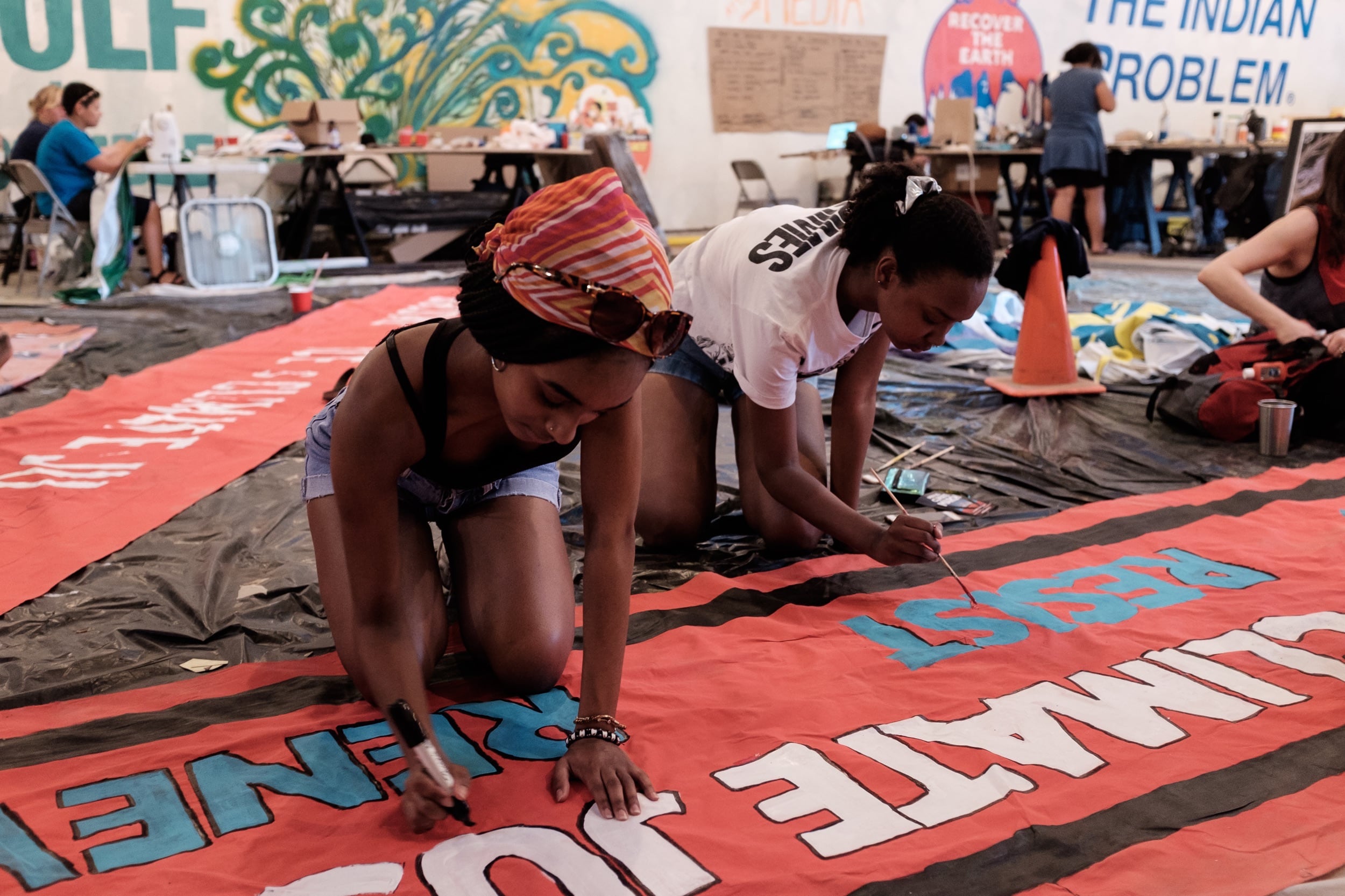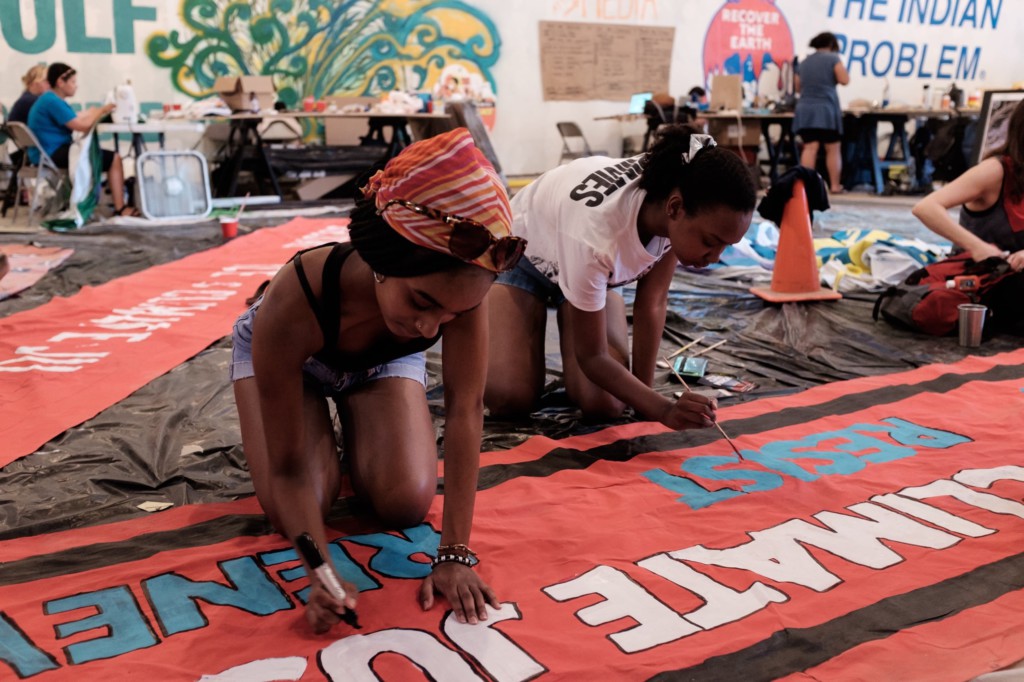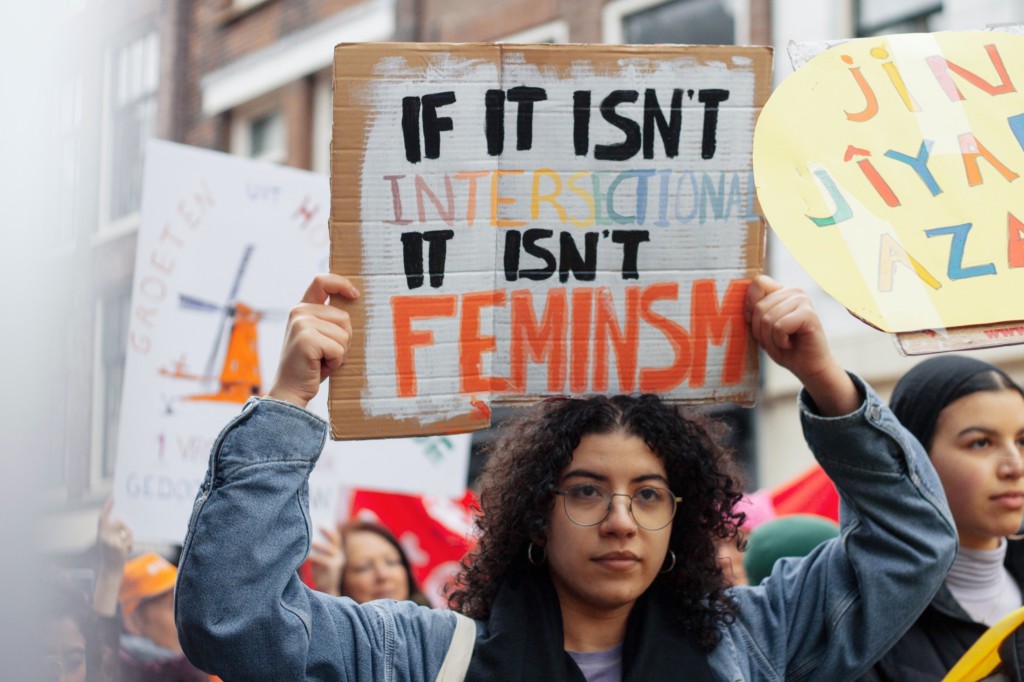
Our Community

Threats to civil liberties are a growing concern around the world. From wars in Ukraine, Ethiopia, and Myanmar to the spread of disinformation that erodes public trust in the American electoral process, it’s apparent that every corner of the globe has been challenged to think about how to make freedom a fundamental right for all.
The Innovation for Change (I4C) network, a special initiative partner of Tides Center, understands this call. This large network of 30,000 local and regional organizations and human rights defenders works across Asia and the Pacific, Africa, Latin America and the Caribbean, and the Middle East and North Africa to address fundamental freedoms of assembly, association, and expression. Together, these change agents are developing innovative campaigns and tools to advance women’s rights, LGBTQ+ rights, youth activism, climate justice, and digital security. In fact, I4C was recently elevated as one of USAID’s top achievements for the global Summit for Democracy’s Year of Action, which was launched to renew democracy in partnership with government leaders, businesses, and civic society organizations.
As we celebrate the achievements of the I4C network and reflect on the Summit for Democracy’s Year of Action, below are five actions we believe philanthropy can take to strengthen global democracy based on our experience providing capacity building and international grantmaking support to this global network of human rights defenders:

1. Fund grassroots organizations and activists with deep networks and understanding of local context.
On-the-ground leaders are uniquely familiar with the local landscape and the historical, political, and systemic factors impacting communities. They can also identify priorities that may be overlooked by international philanthropy. The strong relationships and social capital they hold also enable them to effectively bring people together in ways that elevate and inspire solutions tailored to local context.
Working with and through local or regional organizations can help identify and scale innovations that might not otherwise be implemented. I4C’s Africa Hub has been especially successful in recognizing and supporting promising local organizers to bring their ideas to life. Astrea Justice, a winner of the hub’s Social Innovation Challenge, received the Council of Europe’s 2022 Democracy Innovation Award for its inventive approach to educating Zimbabweans about their legal rights. Another partner at the BudgIT Foundation for the Promotion of Information Technology — which is leading a grassroots coalition working to strengthen government transparency in Nigeria — was selected to be part of the World Economic Forum’s Young Global Leaders Class of 2023.
2. Adopt emergent strategies that shift power.
Complex, chaotic problems, like the ones that impact civil society, require more emergent and rapid approaches. Traditional approaches to philanthropy involve rigid strategies, layers of approvals, and top-down perspectives on success metrics that can limit the impact grantmakers strive to make. In contrast, grassroots organizations are better equipped to evolve and adapt strategies to changing contexts and integrate new insights to strengthen and scale impact. When funders approach grantee partnerships with the mindset that local leaders are the experts, and support that leadership, that’s where the magic — or rather, the impact — happens.
Tides Center supports I4C with a simple theory of change: When frontline activists have full agency to work together and are provided flexible support that enhances capacity and minimizes obstacles, the impact is bigger and more sustainable. While reporting and compliance for government funding is no small thing, there is no list of preapproved or proscribed activities. This approach enables grassroots leaders from dozens of organizations working in nearly 150 countries in the driver’s seat to decide among themselves what is required and what works. It makes space for co-creation, innovative ideas, and new partnerships that work for these communities.
This flexibility has allowed the network to respond powerfully and quickly to emerging needs, including catalyzing a cross-regional effort that helped 1,700 activists escape Afghanistan when the Taliban took control in 2021.
3. Bolster support for nonviolent activities.
Funders have a role to play in speaking out about authoritarian or sectarian violence and ensuring nonviolent movements have adequate resources. Expanding funding for nonviolent collective action is critical to strengthening democracy and geopolitical stability, as nonviolent efforts are three times more likely to lead to a democratic transition. It’s also key to achieving gender equity, since nonviolent movements that engage women are more successful and lead to more egalitarian democracies.
The I4C network works with movements in Tunisia, informal grassroots “resistance committees” in Sudan, and diaspora networks from Egypt, Yemen, and Syria supporting women human rights defenders (WHRDs) to build more effective coalitions and campaigns that center women’s voices in countering repressive regimes, while also building more equal societies. They have produced tools to combat online harassment and disinformation that targets women, along with other resources designed by and for WHRDs to strengthen their agency, resilience, and efficacy.

4. Support collective action and peer learning.
Creating the systems change needed to strengthen civil society can be a long journey. It requires a collaborative effort, along with space for proven solutions and innovative ideas. Supporting collective action within and across countries and regions helps to build trust and local legitimacy, as well as the solidarity needed to maintain momentum in fighting against institutional forces. And most importantly, efforts like I4C help counter the coordination happening between authoritarian governments regionally as well as globally.
I4C creates intentional space for collaboration and peer learning among human rights and civil society activists. They share best practices, lessons learned, and insights through capacity building workshops and co-design sessions. More than 6,000 people have participated in I4C trainings to date, and 738 civil society organizations have engaged in interventions using the project’s advocacy campaign design methodology. These campaigns have led to notable successes, such as the 2020 passage of the first-ever crowdfunding legislation in both Morocco and Tunisia.
One of their largest efforts spans 37 countries and engages activists, journalists, technologists, and members of the private sector working to better understand and combat disinformation. The impact of these projects is impressive, but what’s even more important is strengthened relationships among network members, which will last beyond any single project or initiative.
5. Provide flexible funding and capacity building.
Effective nonviolent collective action requires different types of support at different stages. This includes long-term core operating support for organizational growth and sustainability, as well as rapid, flexible assistance that allows partners to respond to immediate safety needs and continue operations during crises.
Grassroots organizations are often viewed as risky or difficult to fund and are therefore under-resourced, with more dollars going to larger international NGOs that tend to be further removed from local communities. Funders can help break this cycle by prioritizing capacity building support to help organizations develop the staff, systems, and processes needed to effectively secure and manage larger grants. Additionally, pooling funds or working collaboratively with other funders helps minimize the administrative burden for smaller organizations in responding to multiple RFPs or funders.
As part of its role supporting the I4C network, Tides has conducted more than 100 capacity building trainings focused on effective grant and financial management. This support has not only helped them manage the complex compliance that comes with international funding, but also helped I4C members establish a track record of successfully managing funds while also establishing partnerships with new funders. A grant from Tides to the I4C Africa Hub helped them build out their operations and organizational structure, allowing them to register as an independent entity, ready to accept new funding.
To learn more about how you can partner with Innovation for Change and other actions you can take to support global civil society, please contact us.

Read the stories and hear the voices of social change leaders fighting for justice.